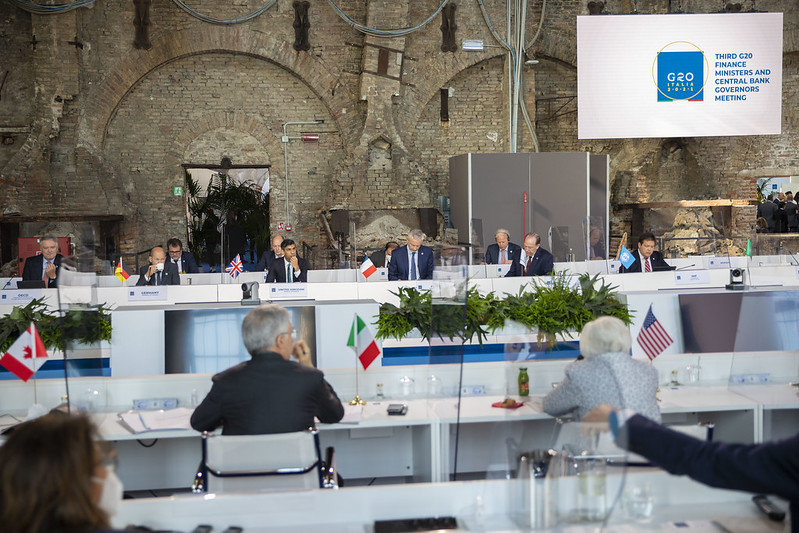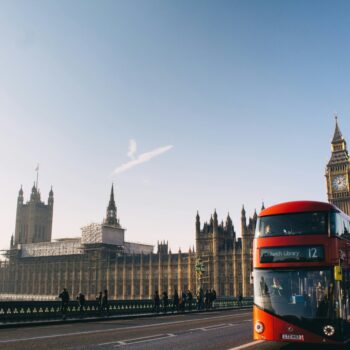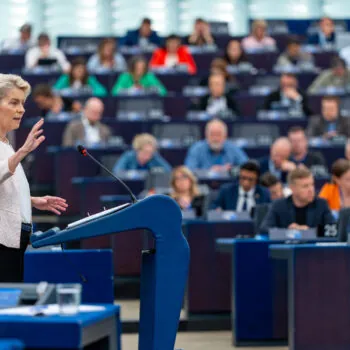This meeting represents a critical decision and judgement moment before the G20 Summit on October 31st followed by COP26. Building on the Venice meetings, the G20’s ability to coordinate on recovery efforts, agree on solidarity measures and give a new mandate for structural reforms are key to the economic transformation needed to close emissions gaps for 1.5C as part of the “Glasgow package”.
The political context is not rosy.
An uneven global recovery, supply-chain delays and disruptions, rising global emissions, worsening climate shocks and insufficient vaccine fairness. Now more than ever, a transformative macro-financial package is needed to build stronger foundations for a stable, inclusive and resilient recovery: G20 Finance Ministers need to coordinate commitments on the quantity and quality of their public spending – a critical and basic function of the G20.
G20 Finance Ministers need to clearly signal continued fiscal support for their own economic recoveries in 2022 and that this spending prioritises climate and development goals, ideally including clean spending floors. Prioritising clean spending at home means prioritising clean overseas spending and investment, too: we need to see commitments to phase out public support for both overseas and domestic fossil fuels.
G20 Finance Ministers need to show that multilateralism works for all – another essential role of this forum.
This means agreeing to solidarity measures for vulnerable countries who do not have the means to address the health, economic and climate crises. This includes meeting and exceeding the gap to deliver the $100 billion climate finance pledge. Now is the time to be specific on how to redirect newly issued Special Drawing Rights (SDRs) where they are most needed.
France’s recent announcement to reallocate 20 percent of their SDRs to Africa is a welcome decision. The new SDR issuance process should also be seen as a first step towards deeper institutional reforms at the IMF, to ensure its lending and debt sustainability frameworks remain fit for purpose. Finally, Multilateral Development Banks (MDBs) must fully play their part. Institutions that deliver public finance for public goods should deliver at pace on their commitment to become Paris-aligned and set out a joint plan for doing so.
Shareholder countries should also ensure that MDBs deploy their full financial firepower through innovative approaches to risk-management, such as reformed capital adequacy rules, and an extended use of guarantees. G20 countries should also improve on their poor track-record of mobilising private finance through developing new platforms that will allow developing economies to use the opportunities in the sustainable bond market. $700 billion of green, social and sustainability bonds were issued in 2020, but so far this opportunity has bypassed many regions in the developing world. There is a major opportunity to level this up across developing and emerging economies.
G20 Finance Ministers need to clearly endorse – not merely welcome, or worse, note – the Sustainable Finance Working Group’s forthcoming Sustainable Finance Roadmap.
This will turn a roadmap into a collective forward plan for all G20 countries to align financial systems with the Paris Agreement and Sustainable Development Goals. In addition, while the Roadmap’s scope is ambitious, it remains to be seen whether the measures it recommends prove equally so. One outstanding area of concern is norms to define green investment , with many G20 jurisdictions having developed or adopted their own set. As E3G has argued, it is essential for the G20’s Sustainable Finance Working Group to go past stock-taking. What is needed now is an agreement that global common principles for norms on green investment are essential to prevent greenwashing, and an agreement to develop these in 2022.
Expectations so far point to the likelihood of an underwhelming outcome. However, there is still time left to course-correct. Political leadership and diplomacy are needed, in particular from key champions – such as Italy and France – to advance and deliver this transformative package. This is essential, not only to address climate change, but also to reaffirm the trust that multilateral processes and cooperation work can and does deliver a more prosperous and safer future for everyone. A disappointing outcome would leave us all, including the incoming Indonesian G20 Presidency, with a mountain to climb in 2022 and little time left to close the gaps to climate safety.



